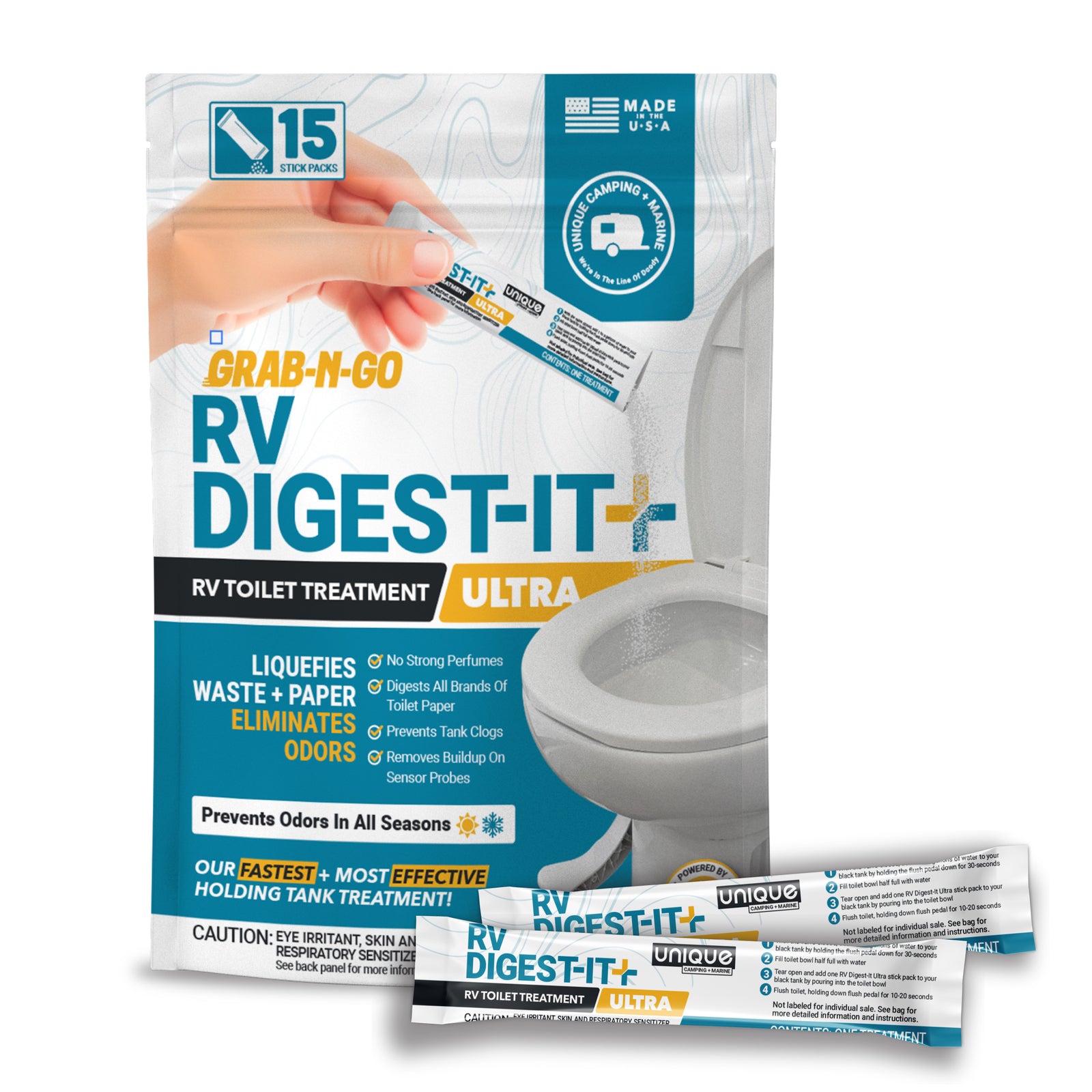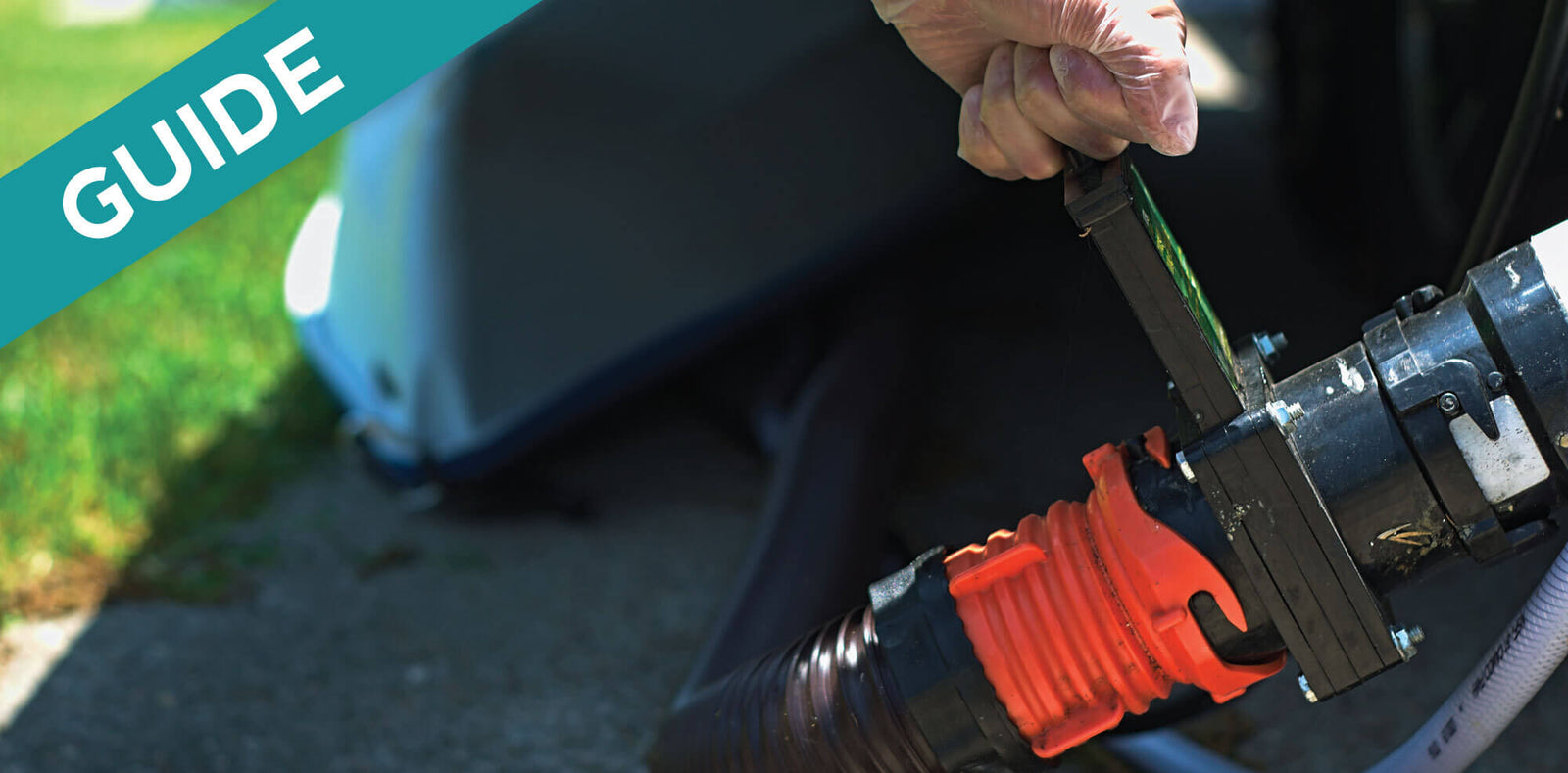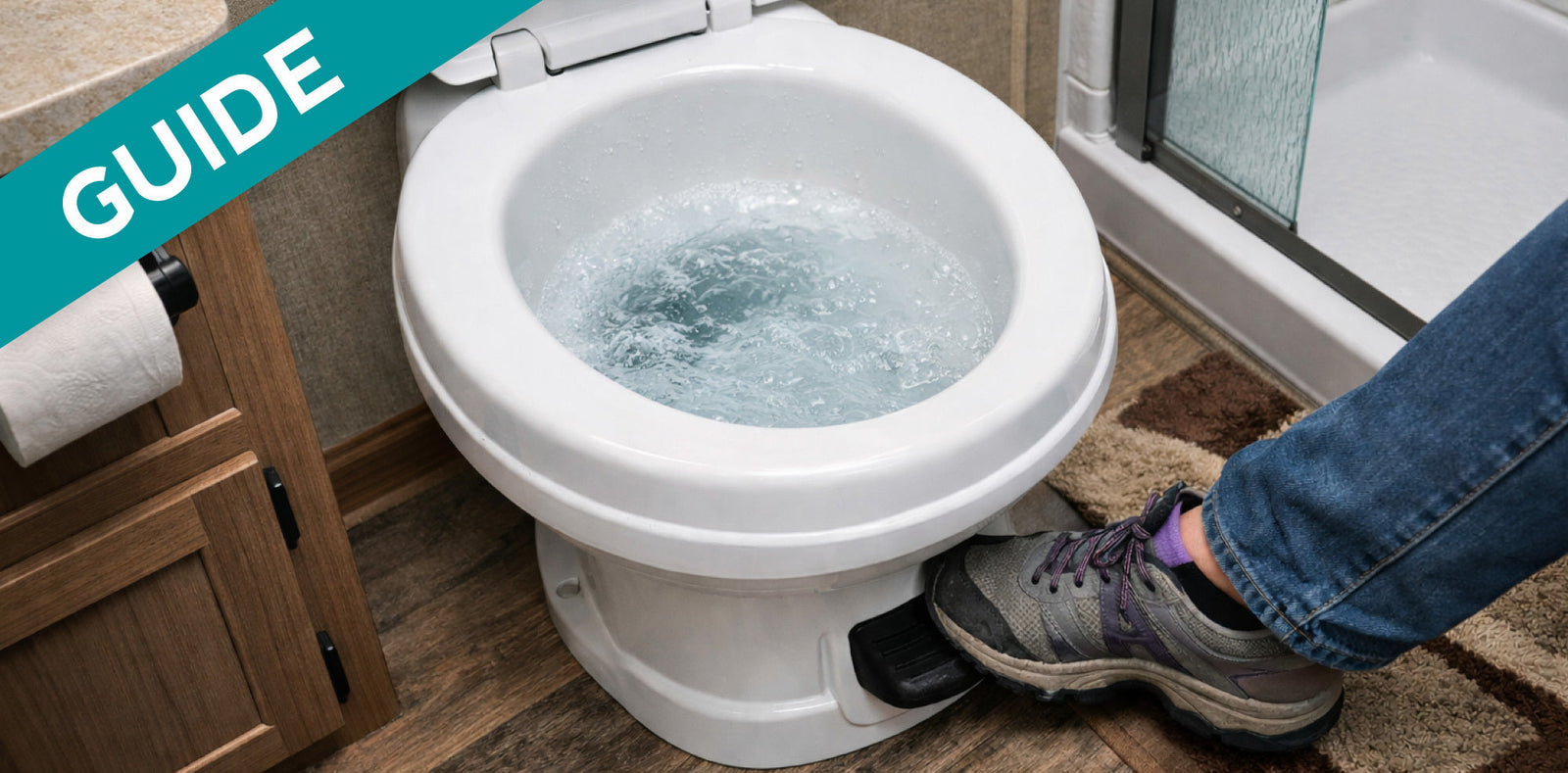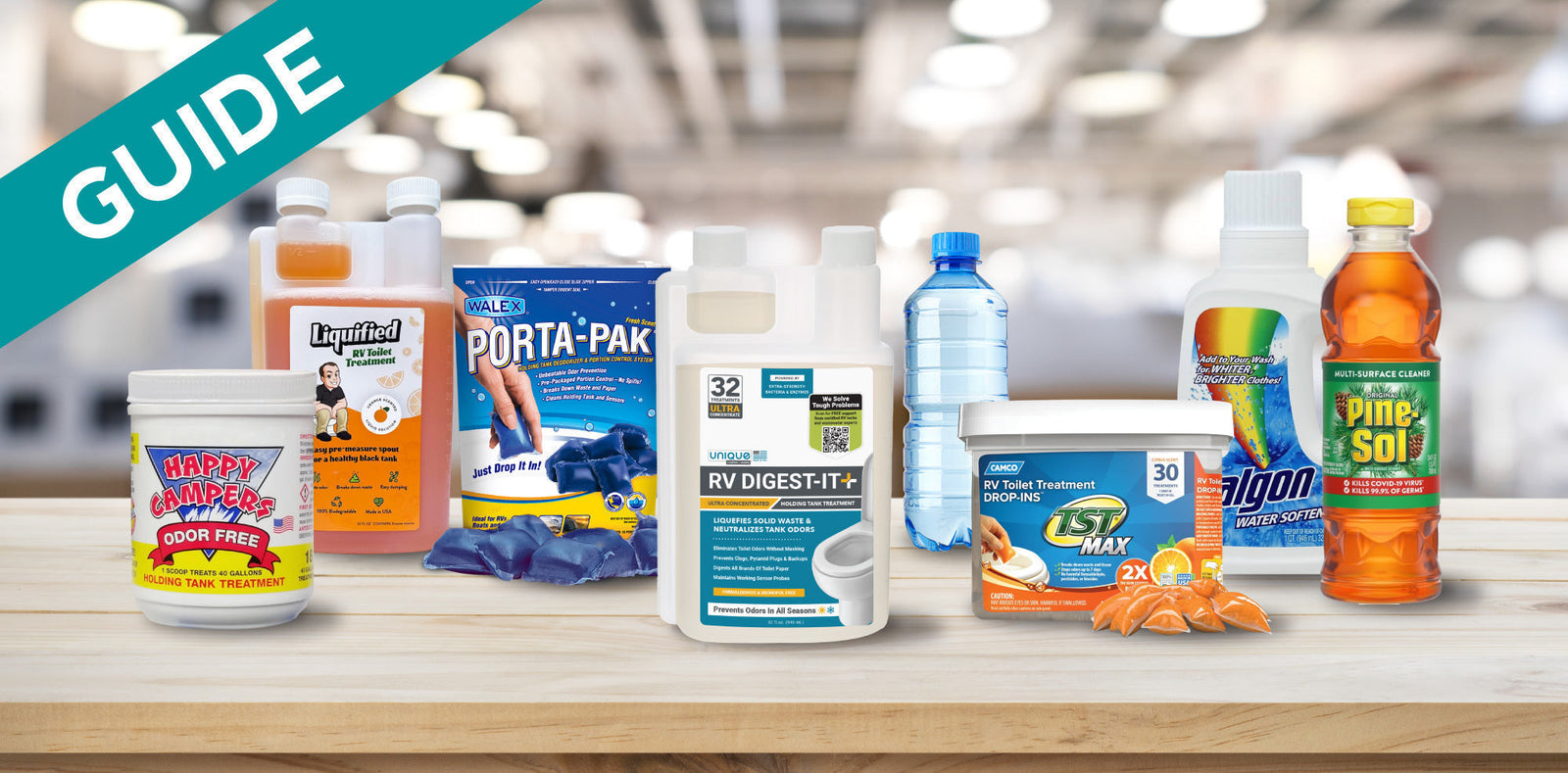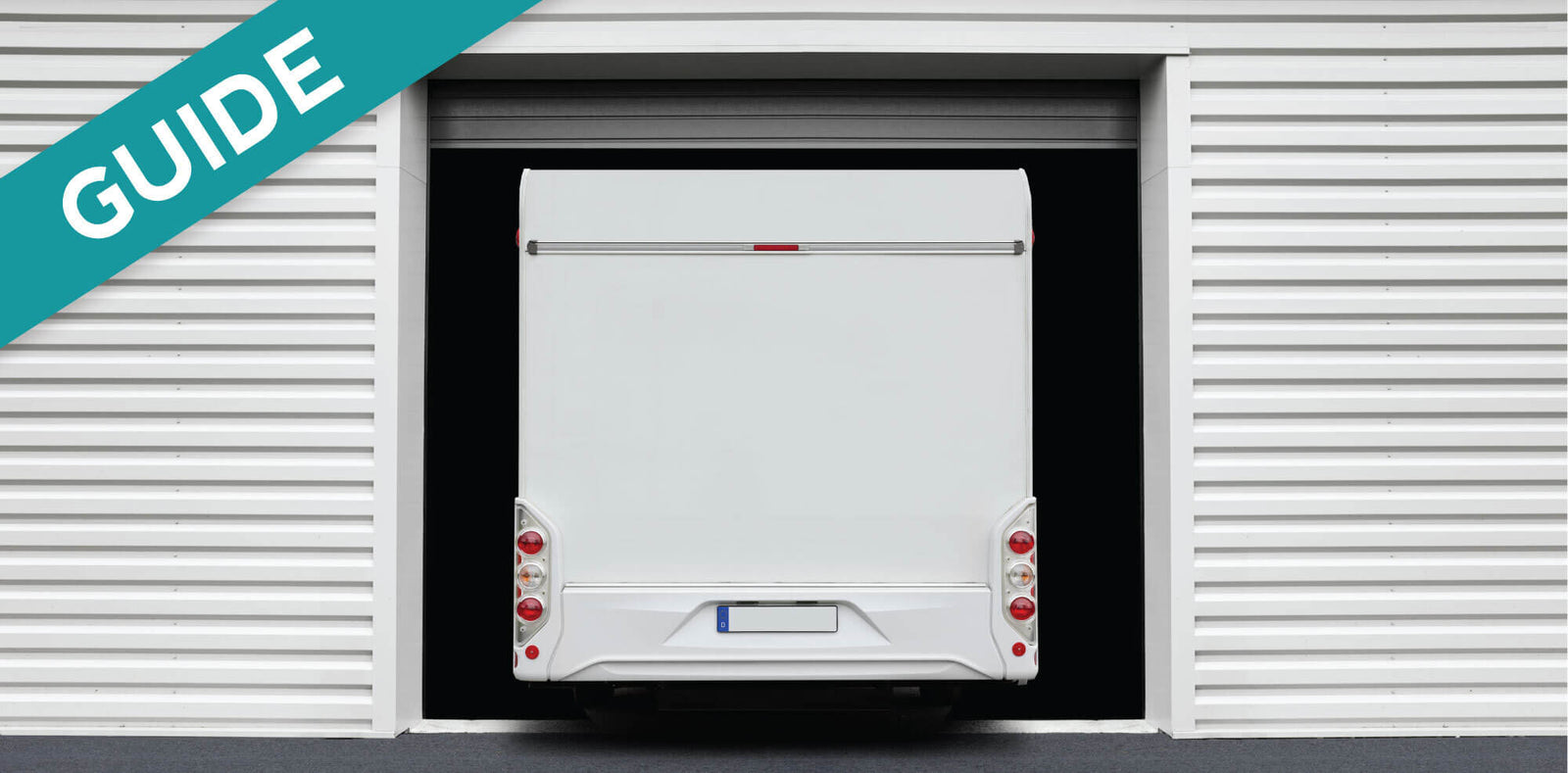
Key Points:
- Proper storage of your RV is essential for maintaining your holding tanks and water system.
- Winterize your RV at the end of the camping season to prevent damage to pipes and tanks.
- Always empty black and gray tanks immediately after each trip.
- Rinse or flush black tanks thoroughly after dumping.
- For short-term storage (days or weeks), store black tanks with clean water and a bacteria based RV tank treatment when freezing temperatures are not a concern.
Storing an RV involves more than just dumping your tanks and parking it in a covered storage space with wheel covers. Improper RV storage can result in avoidable issues. Whether your RV is sitting in a storage lot, your driveway, or a designated storage facility, certain steps must be taken to keep your wastewater system functional. Below are our top tips for storing an RV and preparing your RV holding tanks for different storage durations:
- Seasonal Storage – such as during winter when the RV will not be in use.
- Temporary Storage – Short-term storage for a few days or weeks between camping trips.
- Long-Term Storage – Extended storage, often for months or years when the RV is not in regular use.
Seasonal RV Storage Tips
When learning how to store an RV for a season, particularly during winter, it’s important to follow a storage plan based on your climate:
Warm Climates (No Freezing Concerns)
- Deep clean black and gray tanks.
- Store the black tank with a full tank of water and Unique Store-It and keep the gray tank empty.
- Store-It can remain in the black tank throughout the storage period, helping to maintain cleanliness and eliminate odors.
Cold Climates (Freezing Expected)
- Deep clean black and gray tanks thoroughly before winterizing.
- Winterize your RV by emptying tanks and water lines, or winterize your RV with RV specific antifreeze in the water lines and P traps to prevent freezing damage.
- The cleaner your tanks are before winter, the fewer issues you’ll encounter when using your RV again.
Read more about winterizing in our guide here.
Temporary RV Storage Tips
Even if you’re only storing your RV between weekend trips, proper short-term storage is crucial to preventing clogs and odors. These tips for storing an RV will help maintain your system's efficiency.
Black Tank Storage
- Dump immediately after each trip – Avoid leaving wastewater in the black tank, as it can lead to clogs, odors, and sensor misreadings.
- Rinse/flush after every trip – Whether using a dump station or a home clean-out system, thoroughly rinse your black tank.
- Store with clean water and treatment – Use a bacterial and enzyme treatment like Unique Store-It to break down residual waste and maintain an odor-free environment.
- Watch for freezing temperatures – If freezing is a risk, do not store water or Store-it in the black tank; instead, leave it empty.
Gray Tank Storage
- Dump gray/galley tanks after each trip – Even though gray tanks don’t contain human waste, grease and oils can cause odors and misreading sensors.
- Deep clean with Dawn Ultra dish soap – The night before your last trip day, let the soap break down grease overnight, then dump in the morning.
- Never store with water – Storing an RV with water in the gray tank can lead to grease and oil buildup.
Freshwater Tank Storage
- Always empty after trips – Freshwater should not sit in the tank for extended periods.
- Winterize for the off season – Ensure all water is drained and the system is winterized before long storage periods.
Long-Term Storage Tips(Months to Years)
If your RV will be stored for months or years, additional precautions should be taken:
- Empty and blow out water lines – Use an air compressor or hire an RV technician to remove any remaining water.
- Ensure tanks are completely emptied – Residual waste can cause long-term issues if left in the system.
- Leave black and gray tank valves open – Allow airflow to prevent pressure buildup.
- Open the low-point drain valve on the freshwater tank – This promotes airflow and prevents stagnation.
- Decommission the water heater – Drain and leave it open to prevent damage.
For a more detailed walkthrough and more tips about long-term RV storage and/or winterizing your RV, read this guide. To watch us winterize a fifth-wheel, check out our YouTube channel!
By following these expert tips from Unique Camping + Marine—your trusted source for wastewater expertise for over 30 years—you’ll keep your RV’s wastewater system in peak condition and prevent common storage-related issues. With proper storage practices, you can ensure a hassle-free return to camping whenever you're ready to hit the road again.

Prevent Common Problems In Your Tanks!
From misreading sensors, preventing clogs, or eliminating odors, we've got you covered no matter how you camp! All our best holding tank tips and trick information plus more can be found conveniently in one place when you download our FREE Unique Method Field Guide PDF. Achieve holding tank bliss today!
Get The Free Download Get The Free Download
